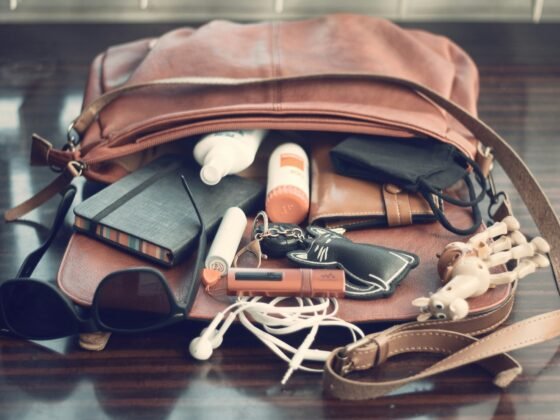Travelling abroad often involves careful planning – from booking flights to sorting accommodation, but one question that often gets overlooked is: How much cash can you travel with?
Whether you’re heading off on holiday or a business trip, understanding the rules for carrying cash across borders can save you from unnecessary stress at customs.
In this guide, we’ll break down international cash limits, UK-specific regulations, country-by-country requirements, and best practices for travelling with cash.
Why Do Cash Limits Exist?
Cash limits aren’t just about bureaucracy; they’re designed to combat money laundering, tax evasion, and other financial crimes.
Governments worldwide set thresholds to monitor large cash movements and ensure money crossing borders is for legitimate purposes.
If you’re travelling with a significant amount of cash, you’ll often need to declare it to customs.
Failing to do so can lead to fines, confiscation, or even legal trouble, depending on the country.
UK Rules: How Much Cash Can You Travel With From the UK?
The UK doesn’t restrict how much cash you can take out of the country, but if you’re carrying £10,000 or more (or the equivalent in foreign currency), you must declare it to HM Revenue and Customs (HMRC).
This rule applies when travelling to any destination outside the UK, including EU countries.
Declaring cash is straightforward:
- Online Declaration: Once you’ve converted your travel money online with Manor FX, you can submit the declaration form to UK customs before departure.
- At the Airport: If you forget, you can fill out the form at the airport before passing through customs.
Failing to declare cash above the threshold can result in the money being seized and potential legal penalties – not an ideal start to your trip!
How Much Cash Can You Travel With Internationally?
Each country has its own cash limits for international travellers. Here’s a quick look at popular destinations and their requirements:
Australia
Travellers entering or leaving Australia with AUD 10,000 or more in cash must declare it to the Australian Customs Service. This rule applies to both residents and visitors.
India
If you’re heading to India, you can carry up to USD 5,000 in cash. If the total value of your foreign currency (including travellers’ cheques) exceeds USD 10,000, you must declare it to the Indian customs authority.
Thailand
Travellers carrying more than THB 450,000 in or out of Thailand must declare it. This relatively high threshold helps authorities track large financial movements.
Turkey
If you travel to Turkey with more than EUR 10,000 (or equivalent in another currency), you must declare it at customs. Failure to do so can result in fines or even the confiscation of the cash.
South Africa
South Africa requires travellers to declare any cash exceeding ZAR 25,000 when entering or leaving the country. The South African Reserve Bank monitors these declarations closely.
Europe (EU Countries)
When travelling between European Union countries, you must declare cash amounts over €10,000. This rule applies both when entering and exiting the EU.
United States
If you’re travelling to or from the United States, you must declare any amount exceeding USD 10,000. This includes cash, traveller’s cheques, money orders, and negotiable instruments.
The declaration process involves completing a FinCEN Form 105, either online before travel or at the border. Failure to declare can result in the confiscation of funds and potential fines.
Best Practices for Carrying Cash While Travelling
Travelling with large amounts of cash comes with risks, but you can manage them effectively by following these simple tips:
- Divide Your Cash: Avoid keeping all your money in one place. Split it between your hand luggage, checked bag, and a secure money belt.
- Use a Money Belt: A money belt worn under clothing provides discreet, secure storage for cash and important documents.
- Stay Informed: Always check the latest customs regulations for your destination before you travel.
- Consider Alternatives: Where possible, use a variety of options like prepaid cards, credit cards, or travellers’ cheques, in addition to holiday cash.
- Keep Documentation: If carrying a large sum, carry proof of the cash’s source, such as bank withdrawal slips or invoices.
- Be Discreet: Avoid publicly handling large amounts of cash, and exercise caution when using ATMs.
Takeaways
Understanding cash limits for international travel is crucial for a smooth, hassle-free journey.
While the UK allows you to carry any amount, you must declare sums of £10,000 or more.
Similarly, many countries set thresholds, often around €10,000, requiring travellers to declare larger cash amounts at customs.
By staying informed and following best practices, you can travel confidently, knowing your cash is safe and compliant with international regulations.
If you plan to travel with cash soon, ensure you’re prepared by checking the latest customs requirements and considering safer travel money alternatives.
Happy travels!
Image: Alexander Grey, Unsplash












